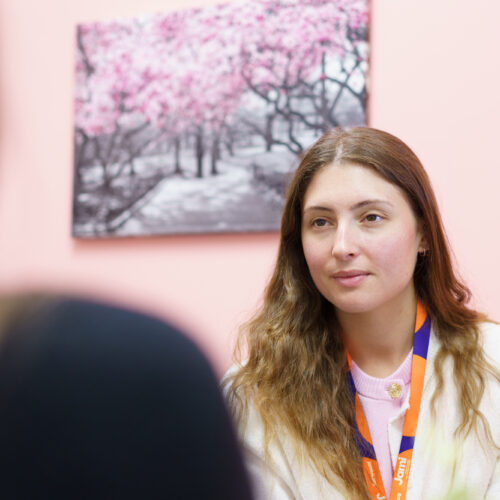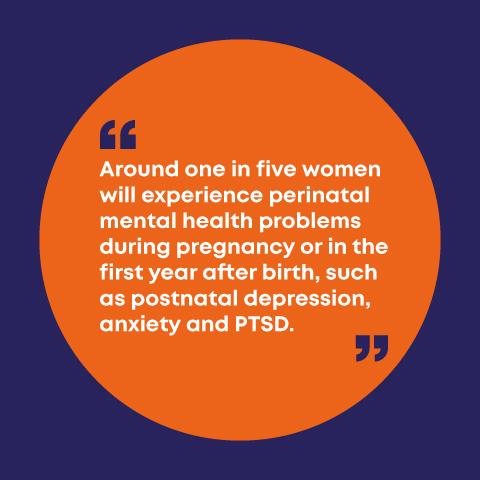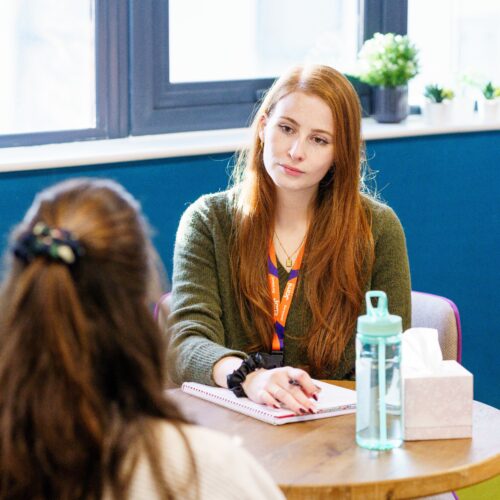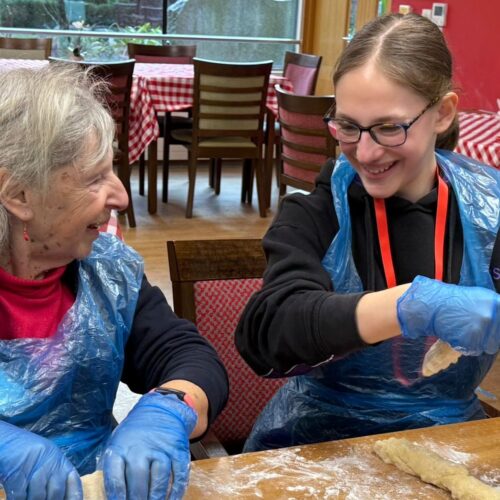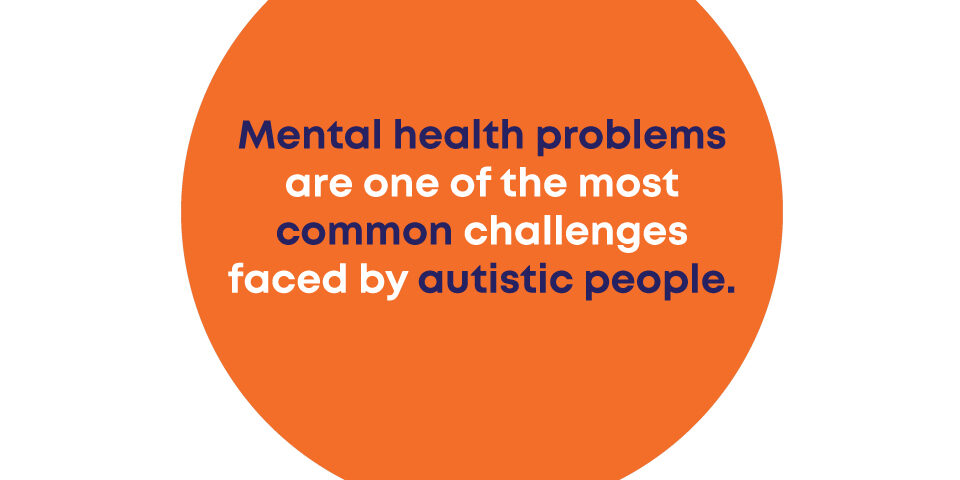
Holly Judge is a volunteer Compeer befriender at Jami, providing practical support and friendship to those with mental illness and distress who feel lonely or isolated. As someone who has experienced her own depression and anxiety because of her autism, Holly explains what it’s like to be autistic on Autism Awareness Day (2 April) and why she’s getting involved in a new mental health peer support group, specifically for neurodivergent people to connect and share experiences, at Head Room, Jami’s social enterprise café, supported by The Maurice Wohl Charitable Foundation.
“I started volunteering as a Compeer befriender for Jami in 2021 because I have a natural compassion and empathy for people who experience mental ill health and was very eager to connect with my local community in Barnet.
A new peer support group
Head Room is a very warm and welcoming space. After I floated an idea about providing more support for autistic and neurodivergent people, I was asked to set up a neurodivergence peer support group and quiet evenings at Head Room. The purpose of the new peer support group will be to offer a supportive environment for neurodivergent people to connect and share experiences. This will take place during quiet evenings at Head Room, where lighting and sound will be adjusted to create a low arousal sensory environment.
Mental health problems are one of the most common challenges faced by autistic people. Around 70–80% of children and autistic adults have experienced mental health problems. And research suggests that the high prevalence of chronic anxiety and depression may be due to stigma/negative perceptions from society, which lead to isolation and loneliness, having to navigate places that don’t meet sensory and communication needs, and then facing barriers to access support.
Having observed, over many years, the changing landscape of how autism and other neurodivergent conditions are perceived, I strongly believe in supporting people to gain as much agency as possible. In other words, building a positive identity and self-awareness of what being neurodivergent means to them, while tackling self-stigma and possible feelings around being labelled by their diagnosis. This is my prime hope for the group, which I will be co-facilitating while also ensuring we are guided by group members on how best to structure the sessions.
Living with autism
I was 16 when I was diagnosed with Asperger syndrome (a term that was once used to describe autistic people who did not also have a learning disability). I was sitting in a psychiatrist’s office with my parents at Great Ormond Street hospital after a four-hour interview, and I distinctly remember the psychiatrist saying, “Think of it in terms of strengths and weaknesses.” Essentially, that was all I was left with until I began my own research which, at the time, was limited to the National Autistic Society, Tony Attwood’s Complete Guide to Asperger’s Syndrome and the odd website. I felt numb. I also felt a fraud. I simply couldn’t believe this was me.
I knew I wasn’t as stereotypical as the cases described, but I also knew I had always struggled to fit in socially, had been consistently bullied throughout school, had intense interests that would consume me at the expense of socialising and, at the time, was gripped by severe depression as a result of feeling left behind by my peer group in adolescence.
Ten years later, I got involved in the Autism in Pink research project, which focused on the unique issues faced by autistic women getting a diagnosis and support. My feelings of being a fraud steadily vanished over the course of this project. As we dug deeper into the nature of our unique thinking styles and ways of perceiving often challenging life trajectories that left us feeling anxious and alone, I gained greater peace of mind in knowing myself better and what I need to live a fulfilled life.
I’m really excited about starting this new group at Head Room. While all the groups at Head Room are inclusive and welcome everyone just as they are, it will be great to have a group that specifically brings together people who are neurodivergent and strives to consider all their potential needs.
If you would like to find out more about the community programme at Head Room and what’s on each day, visit https://headroomcafe.org/community-programme
